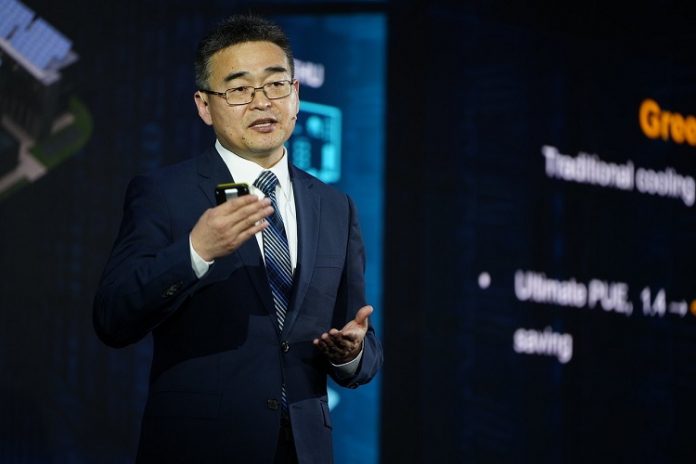
With the theme of “Lighting Up a Low-Carbon Smart Future” – Global Digital Power Forum 2022 was held during the annual Mobile World Congress (MWC) in Barcelona, Spain.
Nearly 200 industry customers and organizations around the world participated in the forum. The industry leaders shared insights on how to innovate green low-carbon networks and data centers and promote clean energy development. Huawei invited customers and partners to attend Lighting up a Green Future for the Industry, a ceremony aiming to guide carriers on a low-carbon path.

Fang Liangzhou, Vice President of Huawei Digital Power, said in his keynote speech that “carbon neutrality has become a global consensus. Huawei actively supports and participates in climate change actions to help customers become carbon neutral. We continuously innovate clean power generation, energy digitalization, electric transportation, green ICT energy infrastructure, and integrated smart energy. By converging energy flows and information flows, Huawei Digital Power is committed to creating a better life, smarter business, more inclusive society, and greener world.”
To help carriers walk on the green development path, Huawei proposed “More Bits, Less Watts” strategy. Through this comprehensive solution that integrates green site, green network, and green operation, carriers can enjoy increased network capacity at lower energy consumption per bit.
Michel FRAISSE, Vice President and CTO of Huawei Digital Power in West Europe, said that Huawei green energy target network aimed to help carriers build green and low-carbon networks.
Site: The energy efficiency can be improved from 60% to 97% after sites are evolved from equipment rooms to cabinets or from cabinets to poles.
Equipment room: The energy efficiency of equipment rooms can be improved from 55% to 75% after capacity expansion and reconstruction. In addition, innovative technologies, such as the precise cooling and intelligent voltage boosting, eliminate the need for adding equipment rooms, replacing cables, and adding air conditioners.
New construction: Cabinets, instead of equipment rooms, are used for the new sites, improving the energy efficiency from 60% to 90%.
Data center: By reconstructing the architecture, power supply, cooling, and O&M, Huawei manages to build simplified, green, intelligent, and safe next-generation data centers with reduced energy consumption and shortened construction period.
Power generation: Huawei helps carriers deploy PV panels in their existing sites, equipment rooms, and campuses, transforming carriers from energy consumers to green energy producers.
Guest speakers shared wonderful insights at the summit. Luis Neves, CEO of the Global Enabling Sustainability Initiative (GeSI), shared how digital technologies can help the traditional energy industry improve energy efficiency and how ICT carbon handprint can reduce carbon footprint in the industry.
Bernd Leven, Head of Energy Performance at Vodafone, shared their practices in using renewable energy at global sites, recycling network waste, reducing carbon emissions in the supply chain, as well as the 2040 net zero carbon emission strategy.
Maria Yolanda C. Crisanto, Chief Sustainability Officer at Globe Telecom, shared their 2030 low-carbon target network plan, which includes simplified site deployment, indoor-to-outdoor reconstruction of existing sites, PV deployment, and genset removal.
Seppo Ihalainen, CEO of Ficolo, and Santiago Hernández Onís, CEO of XDATA, talked about operating data centers with 100% green power and lower PUE, and enabling the industry to reduce carbon footprint through data centers.









